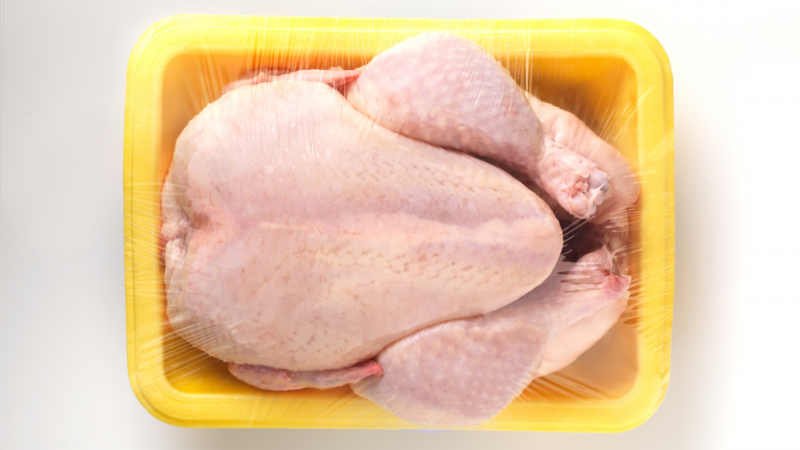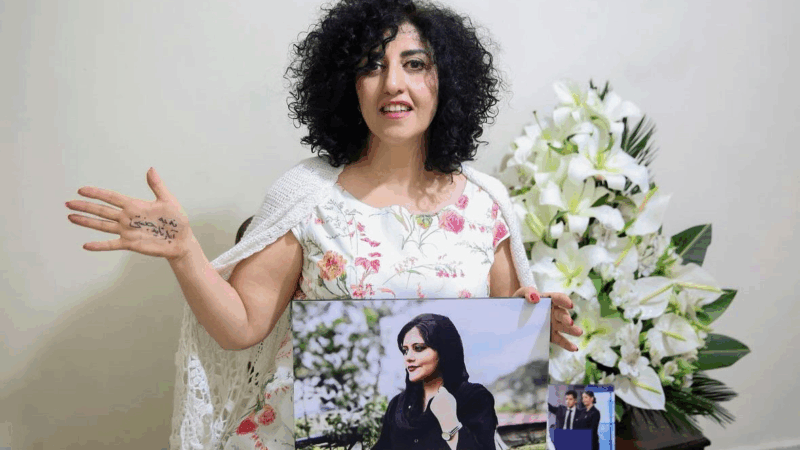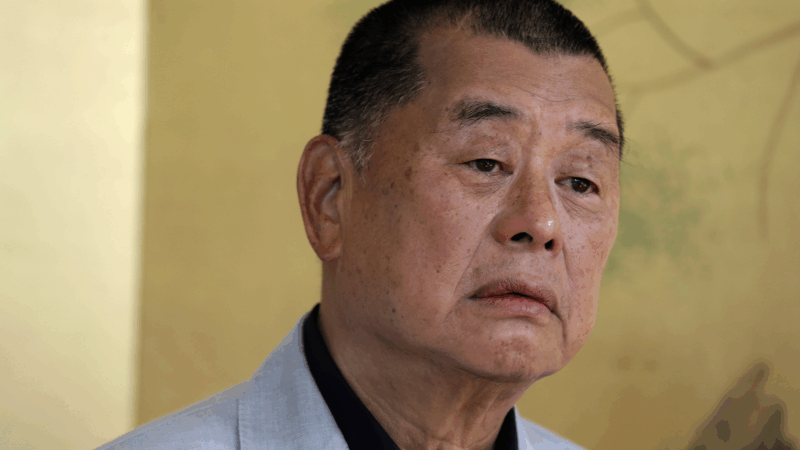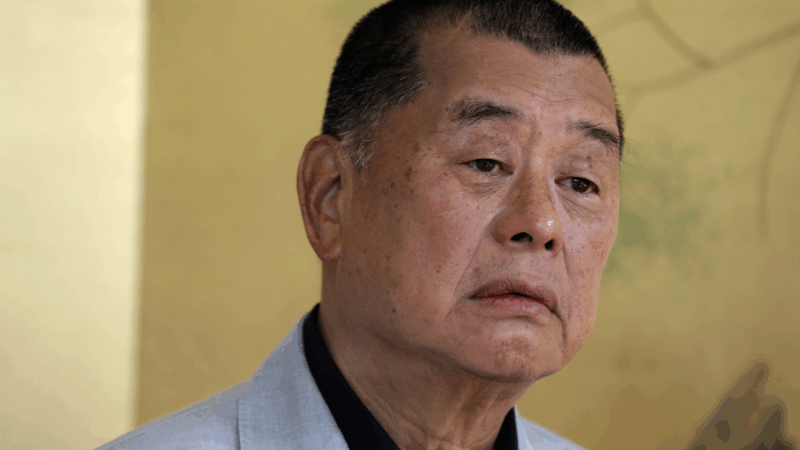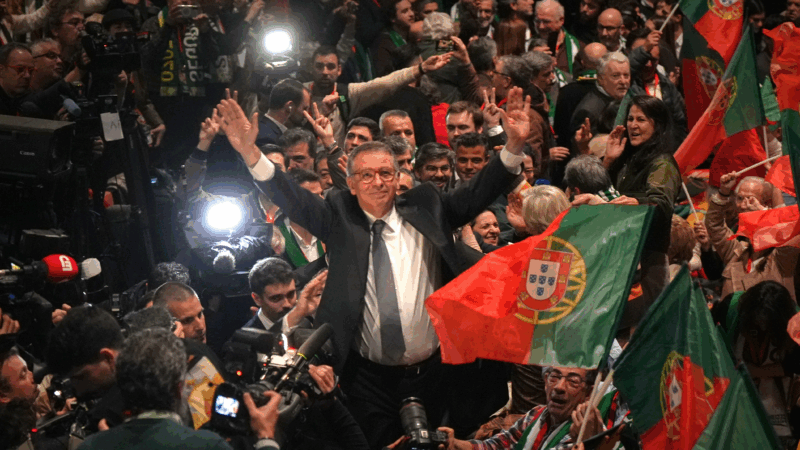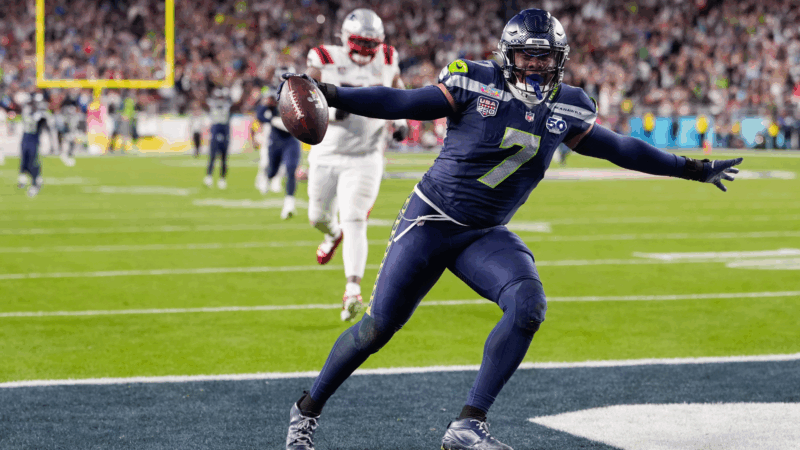Europe deplores America’s ‘chlorinated chicken.’ How safe is our poultry?
When President Trump recently griped about Europe’s distaste for buying American chicken, his comments touched on a long-running and divisive trade spat that’s flared up from time to time.
Europeans disparage U.S. poultry as “chlorinated chicken,” or “Chlorhünchen” in the German press, and see it as possibly unsafe.
The phrase refers to the use of chlorine in poultry processing plants after the birds have been slaughtered in order to cut down on harmful bacteria that are frequent sources of food-borne illness like Salmonella and Campylobacter.
Rinsing poultry in chlorine was common practice in the U.S. when the European Union first passed a ban in 1997 that prohibited chlorine and other so-called “pathogen reduction treatments.”
Fears of chlorinated chicken coming from overseas animated debates during Brexit — and continue to grab headlines.
Over the weekend, the U.K. business secretary Jonathan Reynolds said his country will “never change” its food standards” when asked during a Sky News interview if “chlorinated chicken was on the table or off the table” during trade talks.
It’s not surprising the specter of chlorine-soaked chicken has staying power for European consumers.
But the accuracy of the term has eroded over the years.
“The vast majority of chicken processed in the United States is not chilled in chlorine and hasn’t been for quite a few years,” says Dianna Bourassa, an applied poultry microbiologist at Auburn University, “So that’s not the issue.”
Less than 5% of poultry processing facilities still use chlorine in rinses and sprays, according to the U.S. Chicken Council, an industry group that surveyed its members. (Those that still do use a highly diluted solution at concentrations deemed safe.)
Nowadays, the industry mostly uses organic acids to reduce cross contamination, primarily peracetic, or peroxyacetic acid, which is essentially a mixture of vinegar and hydrogen peroxide.
Bourassa says this is typically used as part of the chilling process. Poultry carcasses are immersed in cold water with a dilution of peroxyacetic acid.
“It extends shelf life and very significantly reduces the number of bacteria,” she says.
Moving away from chlorine has let the U.S. export poultry to other countries that prohibit chlorine, but the U.K. and European Union are still off limits because they don’t allow any chemical treatment of their poultry.
While there may be a “yuck” factor for consumers, the chemicals themselves are not really the driving concern for overseas regulators.
European authorities have analyzed the use of the chemical washes and found they don’t pose a risk to human health at the concentrations used in poultry processing.
In the U.S., it’s not even required to disclose on the label of the poultry what chemical was used to process the chicken.
The European prohibition centers on the belief that disinfecting poultry with chemicals is, in essence, a way to mask subpar food safety in the U.S. industry.
“European regulators are seeing the antimicrobial washes as a band-aid to cover up what’s really a lack of adequate hygiene,” says Sarah Sorscher, director of regulatory affairs at the Center for Science in the Public Interest, a consumer advocacy group.
“Our practices are essentially, in their minds, inadequate,” she says.
The U.S. poultry industry rejects this argument and has pushed for the EU to roll back its rules on imports.
So is poultry in the U.S. more likely to make you sick? It’s challenging to accurately compare rates of foodborne illness linked to poultry in the U.S. and Europe because of how the data are generated.
The EU cites data that its “integrated” approach to food safety dropped cases of Salmonella by nearly 50% over five years when it was implemented in the early 2000s.
“Fundamentally, the regulations are very different,” says Byron D. Chaves, a food microbiologist at the University of Nebraska-Lincoln who studies poultry processing.
Europe relies on “pre-harvest interventions,” to reduce pathogens when the animal is still alive, including vaccination and different types of additives that are used in feed. Whereas the U.S. tends to focus on chemicals and other strategies to kill pathogens once the animal is already slaughtered.
Sorscher argues American producers should heed their European counterparts and try to emulate their “farm to fork” approach, not lobby to have those countries change their standards to accommodate the U.S.
But Chaves says it’s not accurate to say European standards are necessarily more stringent or safer.
“I would be very cautious about pushing that narrative,” he says.
European consumers are likely more risk averse than U.S. consumers and have different values, which is also reflected in their rules, he says. Europe tends to operate on the “precautionary principle” when it comes to food safety.
But Chaves says the prevalence of infection from Salmonella and Campylobacter is very high in both Europe and the U.S. And research finds neither region’s approach is entirely effective at eliminating the risk.
That’s why you want to be up to speed on cooking hygiene. Quick tip: Don’t try washing raw chicken at home – it’ll only spread around any bacteria that might be on the bird – and always make sure you fully cook chicken to 165 F.
Crackdown on dissent after nationwide protests in Iran widens to ensnare reformist figures
Detained Nobel Peace Prize laureate Narges Mohammadi has received another prison sentence of over seven years.
Crackdown on dissent after nationwide protests in Iran widens to ensnare reformist figures
Detained Nobel Peace Prize laureate Narges Mohammadi has received another prison sentence of over seven years.
China critic and former media tycoon Jimmy Lai is sentenced to 20 years in a Hong Kong security case
Jimmy Lai, the pro-democracy former Hong Kong media tycoon and a fierce critic of Beijing, was sentenced on Monday to 20 years in prison in the longest punishment given so far under a China-imposed national security law that has virtually silenced the city's dissent.
China critic and former media tycoon Jimmy Lai is sentenced to 20 years in a Hong Kong security case
Jimmy Lai, the pro-democracy former Hong Kong media tycoon and a fierce critic of Beijing, was sentenced on Monday to 20 years in prison in the longest punishment given so far under a China-imposed national security law that has virtually silenced the city's dissent.
Center-left Socialist candidate wins over populist in Portugal’s presidential runoff
Center-left Socialist candidate António José Seguro recorded a thumping victory over hard-right populist André Ventura in Portugal's runoff presidential election Sunday, according to official results.
Seahawks win Super Bowl title, pounding the Patriots 29-13
Seattle's "Dark Side" defense helped Sam Darnold become the first quarterback in the 2018 draft class to win a Super Bowl, to win the franchise's second title.

